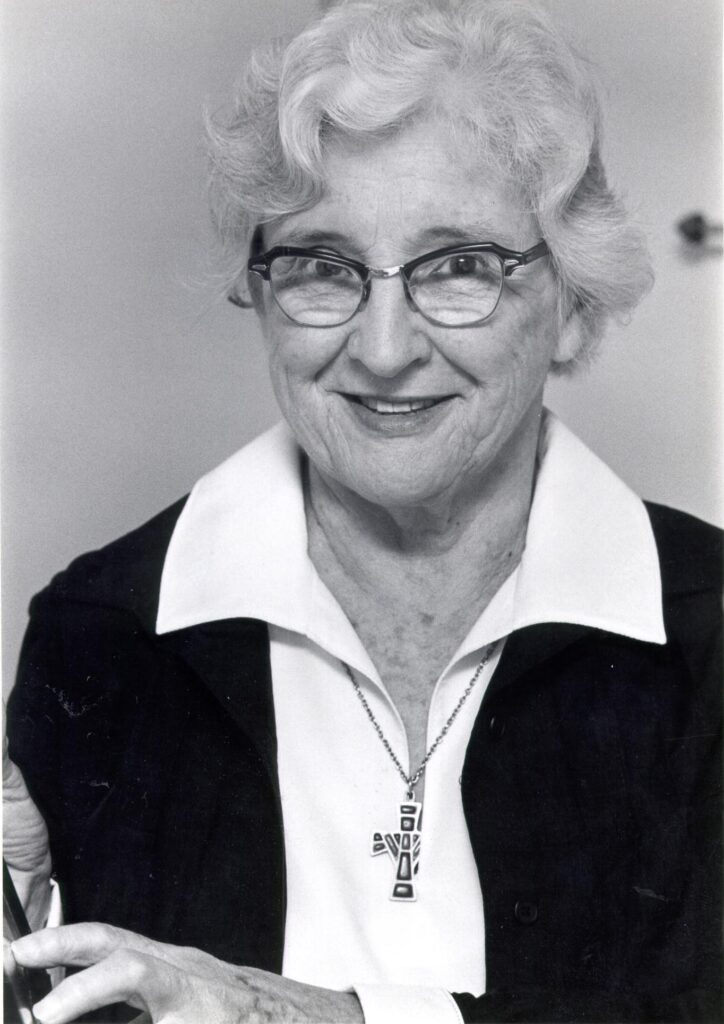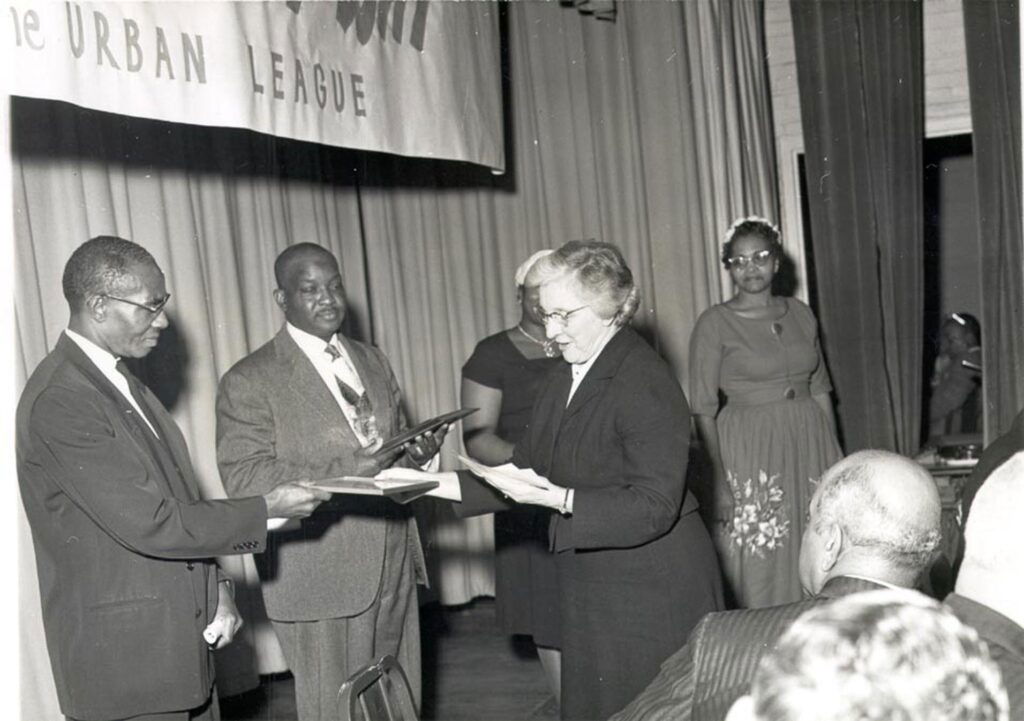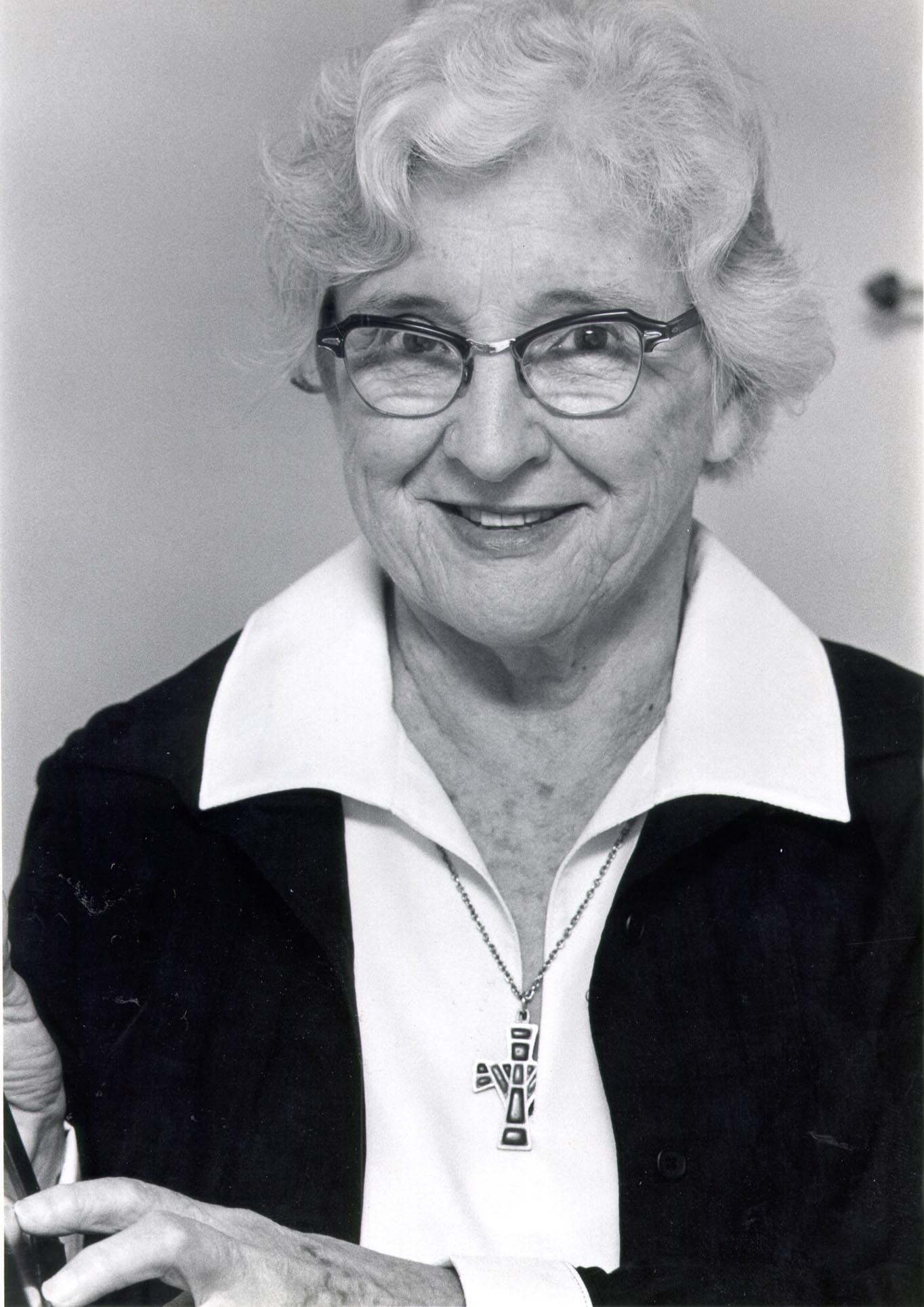Frances Pauley, social activist and political organizer, devoted her life to the battle against prejudice and discrimination in the South. Born in Ohio in 1905, Frances Freeborn Pauley moved with her family to DeKalb County at the age of three. She attended the Decatur public schools and then Agnes Scott College, from which she graduated in 1927 with a major in math and extensive work in drama. Pauley traced the origins of her activist career to the example provided by family members who challenged the racial mores of the South and to the Social Gospel of the Methodist Church. Beginning in the 1930s, a core set of commitments to public education, health and welfare, the civil rights of the oppressed, and the needs of the poor animated a lifetime of educating, organizing, and lobbying that extended into the 1990s.

Pauley first took up the cause of social justice in the era of the Great Depression and New Deal. In the late 1930s and early 1940s she and a group of like-minded churchwomen worked with the county’s public health professionals to establish public health clinics for the indigent population in DeKalb County and brought a hot lunch program to the county schools. The Great Depression was an important lesson for Pauley, as she witnessed the nearly equal suffering of the poor, whether Black or white. For the remainder of her career, she combined efforts to combat racial discrimination with sympathy for the plight of all who lacked basic resources and services.
After World War II (1941-45) Pauley joined the League of Women Voters of Georgia and for the next fifteen years used the league to support racial desegregation and the broader issues of democratic citizenship raised by the civil rights movement. League work also launched Pauley into the controversy over school desegregation in the early 1960s, the lightning rod for much of the early opposition to the civil rights movement. Believing that southern communities harbored more latent support for desegregation than their staunchly segregationist politicians allowed, Pauley joined other white liberals to mobilize support for integration.

As executive director from 1961 to 1967 of the Georgia Council on Human Relations, a statewide civil rights organization affiliated with the Southern Regional Council, Pauley encouraged interracial organizing, advocated enforcement of constitutional rights for African Americans, and championed improvement in the well-being of Black Georgians. She traveled not only to such well-known hot spots of the civil rights movement as Albany but also to towns and hamlets across the state. Her work with an explicitly interracial organization, particularly in the small-town South, is one of the many untold stories of the civil rights movement.
From 1968 to 1973 school desegregation consumed most of Pauley’s time and energy. As a civil rights specialist for the U.S. Department of Health, Education, and Welfare, she deployed federal authority to move recalcitrant school districts in the South into compliance with school desegregation regulations. She retired from the federal government in 1973 and turned her attention to the issue of poverty. In 1975, at the age of sixty-nine, she founded the Georgia Poverty Rights Organization and coordinated its efforts with and on behalf of the poor for more than a decade. Believing that the poor lacked an effective voice in Georgia politics, Pauley worked to educate the public and the Georgia legislature on the origins and nature of poverty and move them to more humane action. Even after her retirement in the late 1980s, Pauley continued to work on poverty, homelessness, and gay rights.
Julian Bond, a friend and colleague from the poverty rights years who memorably called Pauley “everybody’s grandmother and nobody’s fool,” said that her life stands as an injunction to those who wonder how they might possibly make a difference. For more than fifty years Pauley worked tirelessly for social justice, turning for assistance to elected officials, government agencies, and the public at large.
Pauley died in Lancaster, Pennsylvania, on February 16, 2003. She was ninety-seven.































